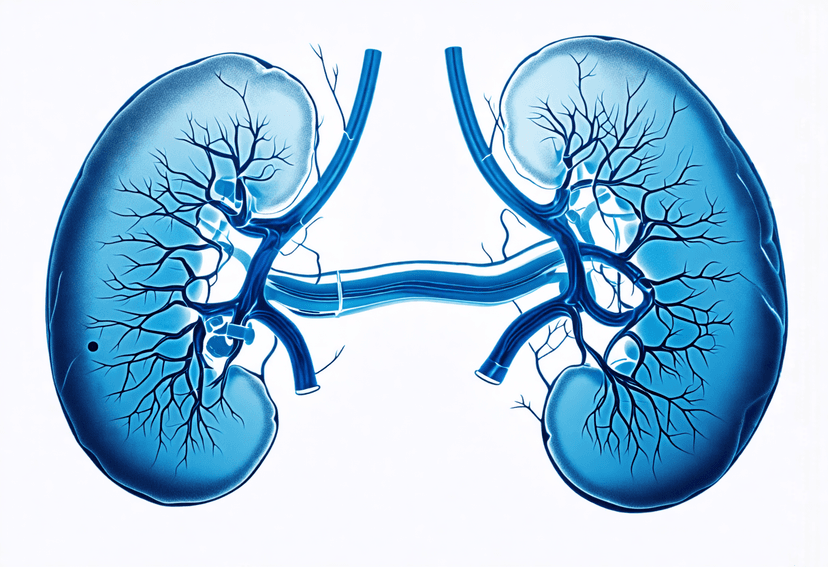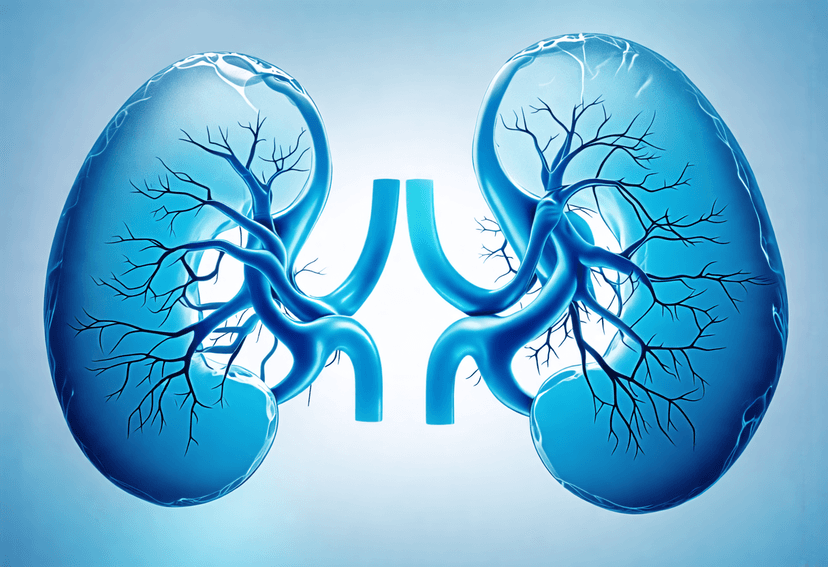
Pancreatic Cancer Surgery: When Is It the Right Option?
27 Nov, 2023
 Healthtrip Team
Healthtrip TeamPancreatic cancer is a formidable and frequently devastating disease renowned for its aggressive nature and limited therapeutic options. Given the challenges posed by this malignancy, early detection and timely intervention are of paramount importance. Among the potential treatment modalities for pancreatic cancer, surgical intervention stands as a crucial option. However, it is imperative to recognize that not every patient is an eligible candidate for pancreatic cancer surgery. In this article, we will delve into the criteria that determine when pancreatic cancer surgery is the appropriate course of action, explore the distinct surgical approaches employed, and underscore the pivotal role of a multidisciplinary approach in the management of this complex disease.
Before delving into the realm of surgical interventions, it is incumbent upon us to acquire a comprehensive understanding of pancreatic cancer itself. The pancreas, a vital organ nestled deep within the abdominal cavity, assumes pivotal roles in the production of digestive enzymes and the regulation of essential hormones such as insulin. Pancreatic cancer emerges when aberrant cells within the pancreas undergo uncontrolled proliferation, culminating in the formation of malignant tumors. Regrettably, pancreatic cancer is often detected at an advanced stage, a circumstance that compounds the complexity of devising successful treatment strategies.
Most popular procedures in India
When Is Surgery Considered?
Surgery for pancreatic cancer is a critical therapeutic avenue, but its appropriateness hinges on several crucial factors. The pivotal considerations encompass the following:
Wellness Treatments
Give yourself the time to relax
Lowest Prices Guaranteed!

Lowest Prices Guaranteed!
- Cancer Stage:Surgery is most efficacious when the cancer is confined to the pancreas without metastasis to distant organs. The stage of the cancer, which is determined through comprehensive diagnostic assessments, including imaging studies and biopsies, plays a pivotal role in dictating the viability of surgical intervention.
- Patient's Overall Health:The patient's general health and physical well-being exert a profound influence on their eligibility for surgery. Individuals with underlying medical conditions, compromised immune systems, or frailty may not be well-suited to withstand the rigors of surgery and the subsequent recovery process.
Can Surgery Cure Pancreatic Cancer?
Surgery can potentially cure pancreatic cancer if the following conditions are met:
- Early Detection: The cancer is diagnosed at an early stage when it is confined to the pancreas and has not spread to other organs.
- Complete Resection: The surgery successfully removes all cancerous tissue, leaving no residual tumor behind.
- Follow-Up Treatment: In some cases, surgery may be followed by additional treatments such as chemotherapy or radiation therapy to reduce the risk of recurrence.
It's important to note that the success of surgery in curing pancreatic cancer depends on various factors, including the stage of the cancer and the patient's overall health. Each case is unique, and the decision to proceed with surgery should be made in consultation with a healthcare team experienced in managing pancreatic cancer.
Surgical Approaches for Pancreatic Cancer:
Distinct surgical approaches are employed in the management of pancreatic cancer, with each method tailored to the specific location and extent of the tumor. The primary surgical procedures encompass:
1. Whipple Procedure (Pancreaticoduodenectomy):
The Whipple procedure, named after the American surgeon Allen Whipple who pioneered it in the 1930s, is the most extensive surgery for pancreatic cancer. It is primarily used when the tumor is located in the head of the pancreas, which is the most common site for pancreatic cancer to develop.The Whipple procedure involves the removal of several organs and structures from the upper abdomen:- Head of the pancreas: This is the part of the pancreas that connects to the small intestine and the bile duct.
- Duodenum: The first part of the small intestine, which connects to the stomach and plays a crucial role in digestion.
- Gallbladder: A small organ that stores bile produced by the liver and releases it into the small intestine to aid in digestion.
- Bile duct: The tube that carries bile from the liver and gallbladder to the small intestine.
- Sometimes a portion of the stomach: Depending on the tumor's extent, a small part of the stomach may also need to be removed.
2. Distal Pancreatectomy:
A distal pancreatectomy is performed when the tumor is located in the body or tail of the pancreas, away from the head. This procedure is less extensive than the Whipple procedure and involves the removal of the affected part of the pancreas. Key components of a distal pancreatectomy include:
- Tail of the pancreas: This is the part of the pancreas that extends towards the spleen.
- Spleen (sometimes): Depending on the tumor's location and involvement with surrounding blood vessels, the spleen may also be removed because it shares blood vessels with the tail of the pancreas.
3. Total Pancreatectomy:
A total pancreatectomy is an exceptionally rare and extensive surgical procedure that involves the complete removal of the entire pancreas. This procedure is typically reserved for cases where the tumor cannot be removed through other surgical methods, or when there is a need to eliminate the entire pancreas due to widespread cancer involvement.In addition to the entire pancreas, a total pancreatectomy may also involve the removal of:
- Spleen: As with a distal pancreatectomy, the spleen may be removed due to its close association with the pancreas.
- Gallbladder: In some cases, the gallbladder may also be removed as it is near the pancreas.
- Part of the small intestine, stomach, or nearby lymph nodes: Depending on the extent of the cancer and the involvement of adjacent structures.
In summary, the choice of pancreatic cancer surgery is highly individualized, depending on factors such as the tumor's location, size, and stage, as well as the patient's overall health. Each type of surgery has its own specific considerations, potential complications, and long-term effects on digestion and overall well-being. Patients should engage in thorough discussions with their healthcare team to make informed decisions regarding their pancreatic cancer treatment plan.
The Multidisciplinary Approach:
Pancreatic cancer treatment is not limited to surgery alone. It requires a multidisciplinary approach involving oncologists, radiologists, surgeons, and other healthcare professionals. This team collaborates to determine the best treatment plan for each patient. Surgery is often combined with other treatments such as chemotherapy and radiation therapy to improve outcomes.
Pancreatic cancer surgery can be a life-saving option for some patients, particularly those diagnosed at an early stage when the tumor is localized. However, not every patient is a candidate for surgery, and the decision should be made carefully based on the stage of the cancer and the individual's overall health. A multidisciplinary approach to treatment, involving various medical specialists, is essential to provide the best possible care for pancreatic cancer patients. Early detection, thorough evaluation, and a personalized treatment plan are key factors in the battle against this formidable disease. If you or a loved one is facing pancreatic cancer, it is essential to consult with a healthcare team experienced in managing this condition to explore the most suitable treatment options.
Related Blogs

Why Choose Healthtrip for Medical Procedures in India? Cost & Quality
Explore the compelling reasons, from cost savings to expert care,

Your Guide to a Successful Healthtrip in Malaysia: Quality & Savings
Planning a healthtrip? Explore Malaysia for high-quality medical procedures and

Top Treatments at Chennai National Hospital: A Healthtrip Focus
Discover leading medical treatments available at Chennai National Hospital for

Retrograde Intrarenal Surgery 101
Understanding the procedure and recovery of Retrograde Intrarenal Surgery

Retrograde Intrarenal Surgery Risks and Complications
Understanding the potential risks of Retrograde Intrarenal Surgery

The Role of Surgery in Pancreatic Cancer
Understand the importance of surgery in treating pancreatic cancer










